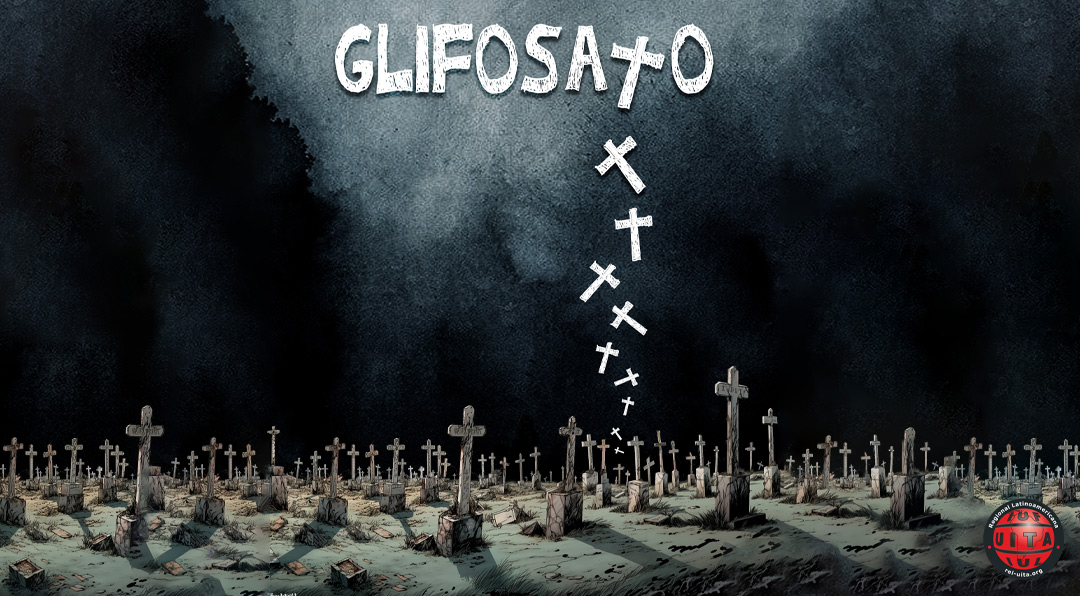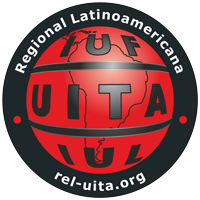A new lease on life for glyphosate in Europe
On Thursday, November 16, the European Commission (EC) voted to extend for ten more years the authorization to use and produce glyphosate in the European Union (EU), despite the mounting evidence in recent years of the substance’s harmfulness.
Daniel Gatti
22 | 11 | 2023

Imáge: Allan McDonaldn | Rel UITA
The decision was adopted following a meeting with the EC’s technical committee in which, for the second time in two months, members failed to reach the necessary majorities to impose a regional ban on the use and manufacture of the most widely applied toxic agrochemical in the planet.
At least 15 of the 27 countries members of the European Union needed to vote against the EC’s proposal to extend the glyphosate permit, with those countries also having to make up 65 percent of the EU’s population.
The votes were not there and the final decision was left up to the EU Executive, which moved to authorize the continued manufacture and sale of the toxic weed killer in Europe, at least until 2033, as it had already announced it would. The renewed authorization is subject to certain minor restrictions, in particular with respect to protection.
France, the second most populated country in Western Europe and the region’s largest agricultural producer, played a decisive role in this outcome.
By abstaining, it blocked a majority from being reached against glyphosate, which has already been banned in parts of Great Britain, Switzerland, Germany, the Netherlands, Luxembourg, and Austria, and, outside Europe, in parts of Canada and the United States.
President Emmanuel Macron had promised, when he was elected for the first time, in 2017, that glyphosate would be phased out from French fields. While that is still the stance of many of the parties that support him, pressure from industry, which has a major ally in the Ministry of Agriculture, proved too strong.
To claim that there “is no cause for critical concern” with glyphosate, the European Commission relied on “comprehensive safety assessments carried out by the European Food Safety Authority (EFSA) and the European Chemicals Agency (ECHA),” which, the EC stated, found that there are no links between glyphosate and cancer.
There is a significant problem with these assessments, however: they are based on data and studies provided by the very companies that produce and market glyphosate-based toxic agrochemicals.
In 2021, an examination conducted by two renowned scientists from the Institute for Cancer Research of the Medical University of Vienna found that of the 53 studies provided by these companies to the ECHA only two could be considered “reliable.”
The agency has instead chosen to dismiss “a large amount of evidence from a variety of new and existing peer-reviewed publications,” as reported by the Ecologistas en Acción network.

Imáge: Allan McDonaldn | Rel UITA
The discarded evidence includes the very recent Global Glyphosate Study (GGS), conducted by universities in Europe, the United States, and Brazil and presented at an international conference on environment, labor, and health in the 21st century held in Bologna, Italy, on October 25.
The research, coordinated by Italy’s Ramazzini Institute, shows the extreme carcinogenicity of glyphosate, both used by itself and in the commercial formulations most widely sold around the world, and even in doses considered safe by European regulators.
The long-term study carried out in rats showed that half of the leukemia deaths observed in rodents sprayed with glyphosate occurred between 21 weeks (equivalent to about 16 years in humans) and one year of age (some 40 years in humans).
One of the herbicides used in the experiments was Round Up BioFlow (manufactured by the multinational corporation Monsanto, currently owned by Bayer), a product that according to the EFSA does not present “critical areas of concern” for human health or the environment.
GGS researchers had previously published a pilot study that found that glyphosate doses considered safe by regulatory agencies in the United States were associated with endocrine and reproductive toxicity in rats.
The GGS findings follow many other similar findings, including several used as basis by the World Health Organization and the International Agency for Research on Cancer to determine, in 2015, that glyphosate is potentially carcinogenic in humans.
Other independent research studies have found that exposure to this toxic agrochemical is associated with neurotoxicity, autism spectrum disorders in children, amyotrophic lateral sclerosis (ALS), Parkinson’s disease, and endocrine disorders.
It has also been found to be highly toxic for some land species (including bees, which are essential for crop pollination, and therefore for human food) and water species, as documented by the Pesticides Action Network International (PAN International) and reiterated by this organization just before the EU technical committee meeting.
In recent years, Bayer has been ordered to pay astronomical sums in compensation (more than 10 billion dollars) to some 125,000 farmers in the United States who filed actions against Monsanto for serious health problems caused by exposure to glyphosate.
The European Commission not only dismissed all of this evidence, it also disregarded the existence of alternatives to glyphosate use.
The poisoning will thus continue.
